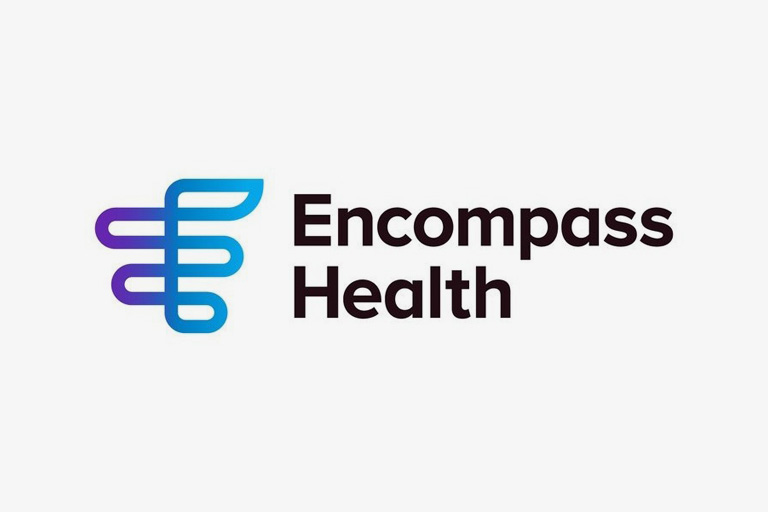More health care providers are encouraging patients to correct errors in their medical records, allowing them to view their doctors’ notes about them online, and add their own thoughts. WSJ’s Laura Landro discusses with Tanya Rivero on Lunch Break. Photo: Getty
Health-care providers are giving patients more access to their medical records so they can help spot and correct errors and omissions.
Studies show errors can occur on as many as 95% of the medication lists found in patient medical records.
Errors include outdated data and omissions that many patients could readily identify, including prescription drugs that are no longer taken and incorrect data about frequency or dosage.
Patients also are being asked to fill in the blanks about pain relievers and other over-the-counter medications, as well as supplements and vitamins, all of which can interact with prescription drugs.
Mary Ellen Sexton, left, found outdated data in her husband Lynn’s, center, medical record. Patients’ checking ‘only helps me,’ says their physician, Richard Martin, right. Wendy Wilson/Geisinger
Technology is giving the efforts a boost: More than half of doctors use electronic medical records, compared with just 17% in 2008, according to the federal government, which offers financial incentives to providers tied in part to giving patients access to their health information online.
Several large medical providers, including Cleveland Clinic, Mayo Clinic, the Veterans Health Administration, Geisinger Health System and Kaiser Permanente, are giving patients direct online access to their doctors’ notes. And they are experimenting with different ways to solicit feedback and allow patients to correct or add to their records.
“If we don’t have accurate data we can’t take care of patients appropriately,” says Jonathan Darer, chief innovation officer at Geisinger. The aim is to move patients and doctors into a relationship of “shared accountability” and more effective medical care, he says.
While studies have shown that immediate harm to a patient because of faulty medical records is rare, such errors can lead doctors to miss important information, such as whether patients aren’t taking their drugs as prescribed, which can lead to worsening of a disease or condition. In an emergency, it’s critical to know what drugs are in a patient’s system, as hospital staff may prescribe new drugs that conflict with them.
Common Errors in Medical Records
Outpatient medical records often contain missing or inaccurate data, including:
- New prescription medicines aren’t listed, or medicines are listed that the patient isn’t taking anymore.
- An incorrect or outdated dosage of a prescription medicine.
- Duplicate prescriptions for brand-name and generic medications.
- Over-the-counter remedies, such as pain relievers, vitamins or other supplements, aren’t listed.
- Incomplete or missing information about medication allergies.
- Erroneous information about treatment outcome, such as a condition that is noted as resolved but is still a problem.
- Updated information about lab results is missing.
- Details about symptoms, as reported by the patient, are missing.
- Inaccuracies in diagnosis.
- Missing information or updates from another provider.
Source: Geisinger Health System; NORC/University of Chicago
Even when gaps in the medical record are a result of the patient’s failure to provide updated or complete information, providers might still face legal liability in the event of an adverse or allergic reaction or a prescription that doubles something the patient is already taking. The risk is especially high for older patients, who often take several medications for one or more chronic diseases and may not recognize that, say, a brand-name drug and a generic-name drug are the same.
Patients with access to their own medical information are more likely to ask questions, identify inaccuracies and give additional information that might affect data in their records, according to research conducted by research organization NORC at the University of Chicago, under contract with the federal Office of the National Coordinator for Health Information Technology.
In a pilot study that the Chicago researchers conducted with Danville, Pa.-based Geisinger, patients with chronic diseases like diabetes and heart failure were invited to go online between November 2011 and June 2012 to update the medications in their electronic health records before a doctor’s visit. They had the option to indicate which meds they were no longer taking, which they were taking differently than described and which they were taking that weren’t listed. Geisinger pharmacists followed up with the patients to update their records and notify doctors and case managers about changes.
In nearly 90% of cases, patients requested changes to their medication records, including changes to doses and frequency of existing medications and requests to have new medications entered.
On average, patients had 10.7 medications listed, with 2.4 requested changes.
Information reported by pharmacists suggests that in 80% of cases, patient feedback was accepted and resulted in changes to the record. For patients who couldn’t be reached by phone to confirm, updates were limited to discontinuing an old medication, adding a new OTC drug or correcting a clerical error such as a duplicate prescription.
Focus group participants said access to the medication list better prepared them for doctor visits and enabled them to take a proactive role in managing their care.
A few stopped taking medications that could have been detrimental to their health, such as a patient who had surgery and reported that he had begun taking B-12 vitamins. He got a call from a Geisinger staffer telling him to stop taking the vitamins to prevent overdose, because he was already receiving B-12 injections.
In the short term, Geisinger’s Dr. Darer says, “there may be some awkward questions from patients about data discrepancies or inaccuracies.” But in the long run, he believes malpractice liability will be reduced.
“The data will be better, and patients will have been part of the process,” Dr. Darer says.
Geisinger is currently adopting the medication feedback initiative more broadly in the health system, which serves northeastern and central Pennsylvania. It also is expanding its use of another initiative, Open Notes, which currently allows some 168,000 patients to view their doctors’ notes online through a secure patient portal.
Patients can add their own notes, and starting this summer family caregivers will be able to add notes, including asking for corrections about patients who may not be able to comment on their own.
Barbara Pierson, age 70, who manages an insurance office near her home in Howard, Pa., says her electronic record on the Geisinger health portal showed she was taking both a brand-name prescription drug and a generic version. She had asked her doctor to switch her to the generic because of the lower cost, but after the change the brand-name drug continued to appear in the record.
“I just happened to go online and check before my last appointment, so I was able to tell them about it when I went in,” she says.
Mary Ellen Sexton, 78, used the Geisinger portal to check her own health records and those of her husband Lynn, 81, a retired machinist who has had a heart attack, bypass surgery, two angioplasties, a stent, hip and knee surgery and gallbladder surgery.
“With Lynn at the stage he’s at with medications, I check it quite often,” Mrs. Sexton says.
After every visit with their physician, Richard Martin, Mrs. Sexton checks OpenNotes to review what was said during and after the appointment.
Mrs. Sexton recently noticed that her husband’s record still listed a cough medicine that his doctor had recommended for a bad cold earlier this year, along with a prescription drug delivered by an inhaler to help with breathing trouble.
She also noticed results were in for a blood test of his thyroid, which was listed as abnormal.
Her active approach “only helps me,” Dr. Martin says. She informed him about the change to the medication list. And while he usually reviews labs at the end of the day, Mrs. Sexton beat him to her husband’s report.
“She was Johnny on the spot,” bringing the abnormal labs to his attention so he could call in a medication right away.
At first, Dr. Martin says, he expected younger patients to be the most active in checking the doctor’s notes and records.
“But it really turned out older folks use it the most and get the most benefit, because they are the sickest and taking the most medications,” Dr. Martin says.















































